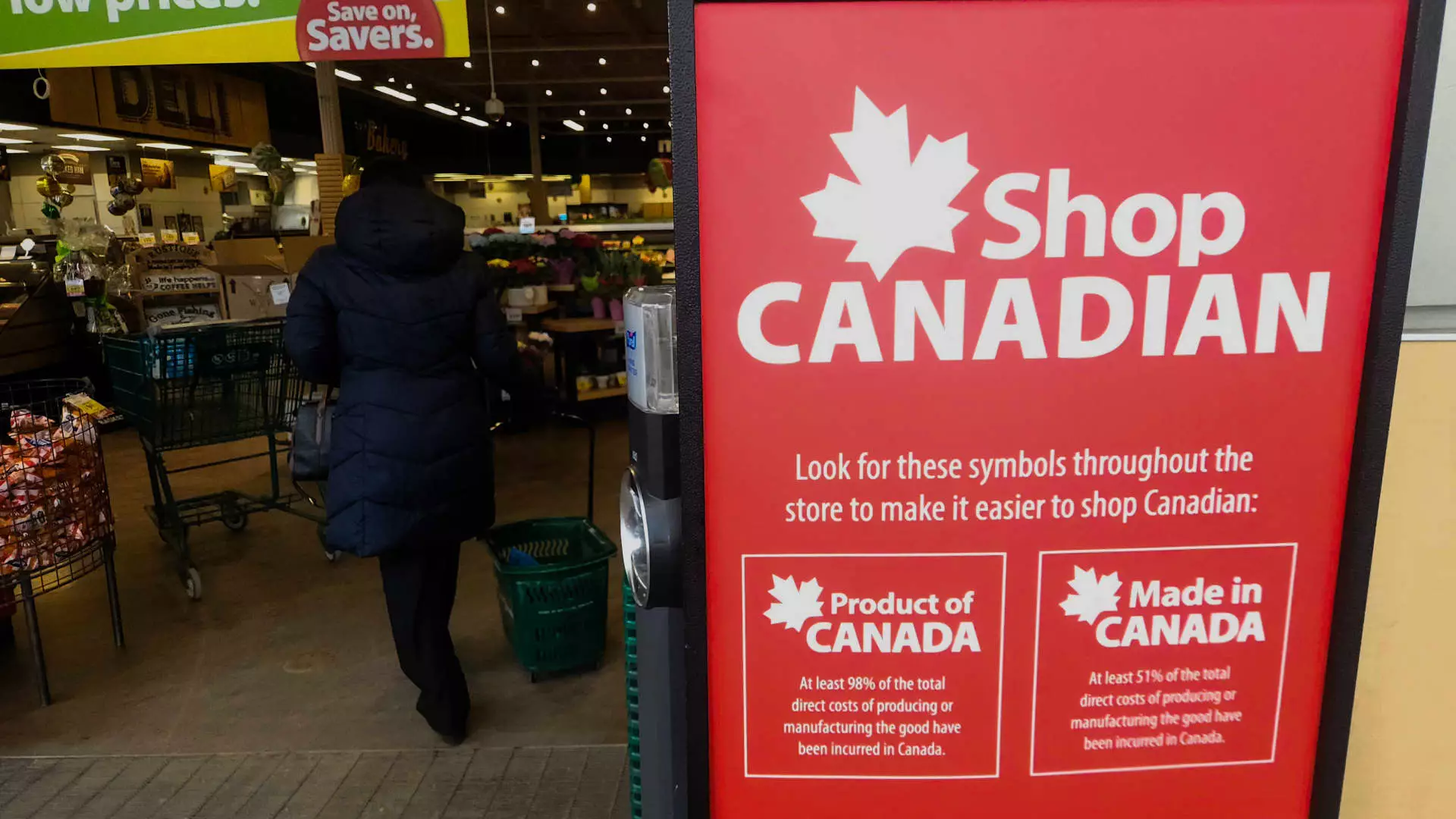In an increasingly interconnected world, trade relationships are more than just numbers on a balance sheet; they delve into the delicate web of personal and national relationships. President Trump’s tariffs on Canadian goods have stirred not just economic ripples but significant emotional tides that cannot be ignored. For many small business owners and consumers, this is not a mere political maneuver but a deeply personal affront. When the President posits tariffs as a way to seal the economic borders of America, he effectively draws a line not just on a map but in the hearts of those who rely on cross-border trade for their livelihoods.
Tariffs typically benefit few while imposing burdens on many, especially in a nuanced economy where large entities can absorb shocks far better than the small businesses that often form the backbone of local markets. This miscalculation is glaringly evident as many entrepreneurs report feelings of betrayal and distress. Growing up in a time of increasing globalization, the instinct to foster cooperative trade agreements has been deeply ingrained in many Canadian businesses. Now faced with the reality that their biggest trade partner appears to wield economic power against them, many entrepreneurs are left reeling, contemplating their future in a partnership that was once characterized by mutual trust and respect.
Effects on National Pride and Identity
Amid this storm of economic uncertainty, it appears that national pride is taking center stage. Canadian companies are increasingly using symbols of national identity to reclaim their narrative. Cafe chains like Balzac’s Coffee Roasters have cleverly revamped their offerings to reinforce local sentiment by renaming ubiquitous items like the Americano to the “Canadiano.” This method serves more than just branding; it is an outright declaration of independence, a way of countering external pressures with an internal rallying cry.
In a similar vein, grocery retailers like Your Independent Grocers are making a point to highlight Canadian-made products, resorting to badges that explicitly mark local items. Here, the symbolism is significant. It’s more than just consumer choice; it’s a reclaimed empowerment amid adversity, inducing a feeling of solidarity among consumers. Amid the turmoil of tariffs, these businesses have found a way to take that spirit of national pride and turn it into economic resistance.
Challenging U.S. Reliability
The tariffs also raise troubling questions about the reliability of the U.S. as a trade partner. According to the Canadian Federation of Independent Business (CFIB), over half of its members regard the U.S. with skepticism, a far cry from the previously warm embrace of a neighboring ally. These sentiments amplify the caution Canadian businesses now exercise in negotiating contracts and building partnerships with U.S.-based entities. The once highly interdependent nature of trade is increasingly feeling one-sided, with Canadian businesses fearing the volatility that comes with economic decisions propelled more by political maneuvering than economic consensus.
Corinne Pohlmann, CFIB’s executive vice president of advocacy, has heard the concerns echoing from her members. The complications brought on by these tariffs extend beyond balance sheets; they have created a pervasive sense of unease. Combining emotional distress with fluctuating costs converts what would usually be business-as-usual into a fraught negotiation akin to navigating a minefield. Though businesses may physically operate across borders, the fallout from these tariffs has undeniably created a psychological rift that complicates interactions at every level.
The Impact on Soft Power
Beyond immediate economic repercussions, the American move to impose tariffs could have protracted implications for its “soft power.” This term goes beyond the transactional nature of trade, encompassing ideals, values, and influence that the U.S. has historically constructed. Former Secretary of State Antony Blinken has hinted that the erosion of U.S. soft power is an alarming prospect. As Canada and other nations grow wary of their economic alliances, the very fabric of global relationships may fray.
When trusted partnerships become hostile grounds for negotiation, the outcome can ripple through generations. The sentiment that an economic ally could quickly pivot to become a source of distress leaves a lingering distrust that is hard to mend. If businesses continue to anchor themselves in a reality where they must protect their interests from an unpredictable partner, the ramifications for cooperative efforts on social, environmental, and political fronts could be profound.
As the dust settles, it remains clear: the underlying issues extend far beyond mere tariffs. They touch deeply personal experiences, erode deeply rooted relationships, challenge national identities, and raise complex questions about the future viability of international partnerships. Tariffs have become a keystone of not just economics but a significant factor in shaping the socio-political landscape of North America. Each decision made on a macroeconomic scale has a nuanced tale of its own, constantly reminding us that in the world of trade, personal and collective fortunes hang in the balance.

